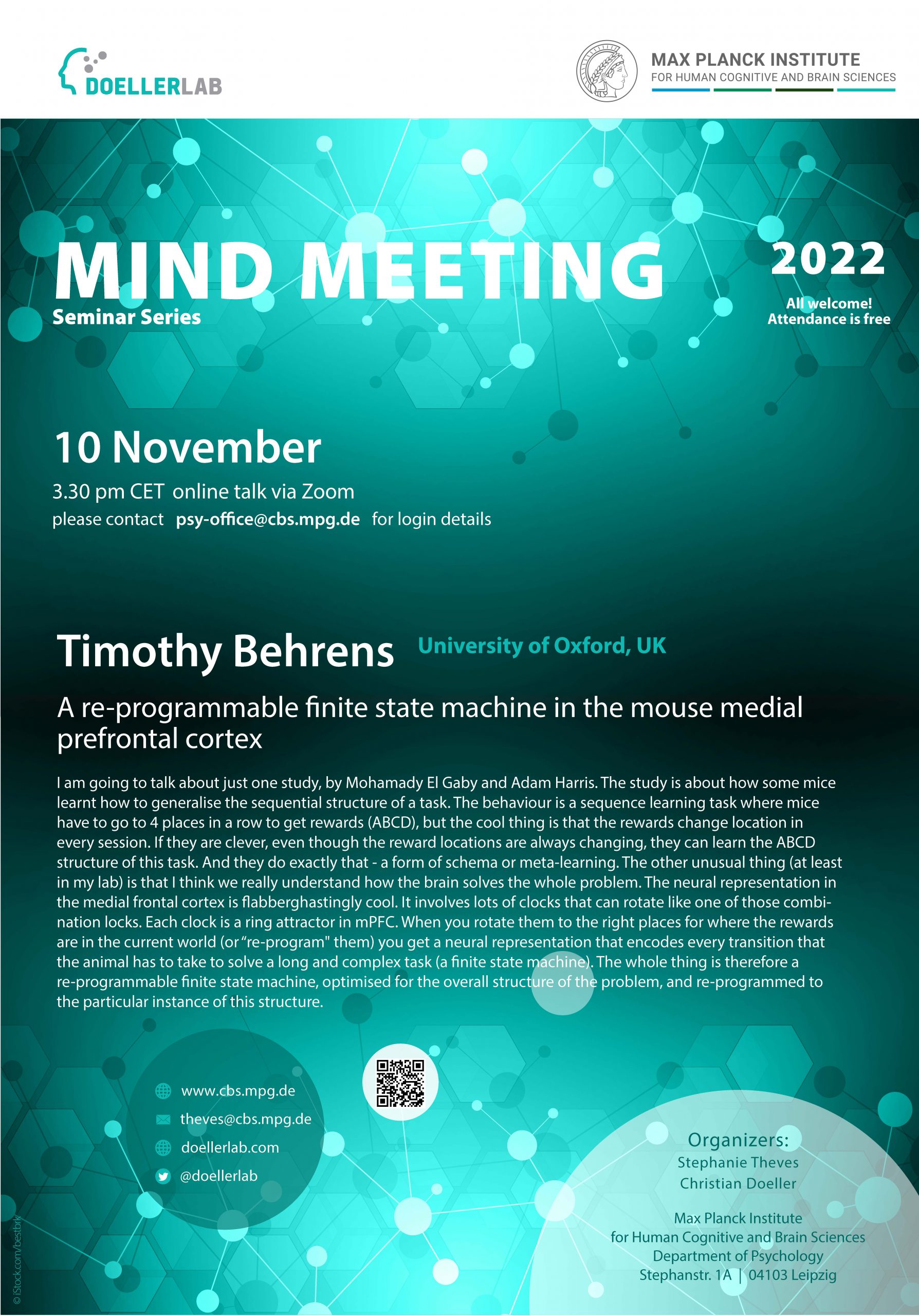The Department of Psychology is delighted to announce the next online talk of the Mind Meeting Seminar Series.
On Thursday 10th November 2022, 3.30 pm CET, Professor Timothy Behrens (University of Oxford, UK) will give a talk entitled “A re-programmable finite state machine in the mouse medial prefrontal cortex”.
The talk will take place virtually via Zoom. Please contact us at psy-office@cbs.mpg.de if you are interested in taking part.
Abstract
I am going to talk about just one study, by Mohamady El Gaby and Adam Harris. The study is about how some mice learnt how to generalise the sequential structure of a task. The behaviour is a sequence learning task where mice have to go to 4 places in a row to get rewards (ABCD), but the cool thing is that the rewards change location in every session. If they are clever, even though the reward locations are always changing, they can learn the ABCD structure of this task. And they do exactly that – a form of schema or meta-learning. The other unusual thing (at least in my lab) is that I think we really understand how the brain solves the whole problem. The neural representation in the medial frontal cortex is flabberghastingly cool. It involves lots of clocks that can rotate like one of those combination locks. Each clock is a ring attractor in mPFC. When you rotate them to the right places for where the rewards are in the current world (or “re-program” them) you get a neural representation that encodes every transition that the animal has to take to solve a long and complex task (a finite state machine). The whole thing is therefore a re-programmable finite state machine, optimised for the overall structure of the problem, and re-programmed to the particular instance of this structure.



